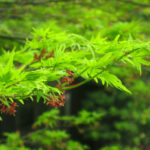Li ni ri words – Inflection of words like PIENI
On this page, you can find several lists of words like PIENI, TIILI and UNI. In many sources, you will find these wordtypes grouped under the term “li ni ri words” or something similar. This is due to the fact that a large portion of these words end in one of those three letter combinations. Learn more about the full picture below.
1. Inflection of the word pieni
| Case | Singular | Plural |
|---|---|---|
| Nominative | pieni | pienet |
| Partitive (mitä?) | pientä | pieniä |
| Genitive (-n) | pienen | pienten, pienien |
| Inessive (-ssA) | pienessä | pienissä |
| Illative (mihin) | pieneen | pieniin |
| Elative (-stA) | pienestä | pienistä |
| Adessive (-llA) | pienellä | pienillä |
| Allative (-lle) | pienelle | pienille |
| Ablative (-ltA) | pieneltä | pieniltä |
| Translative (-ksi) | pieneksi | pieniksi |
| Essive (-nA) | pienenä | pieninä |
2. Subtypes of LI NI RI words
Below, you can find three subcategories. All PIENI, TIILI and UNI types of words will have their final -i replaced by -e- in all singular forms except the partitive. For the partitive, the final -i gets replaced with -ta/tä.
The plural genitive is the only thing that sets these three subcategories apart from one another: we can have the plural genitive ending -ten, or -ien, or both of these as possible endings.
- Pieni: two possible plural genitive forms (-ten and -ien), of which the one ending in -ten is most common
- Uni: two possible plural genitive forms (-ten and -ien), of which the one ending in -ien is most common
- Tiili: only one plural genitive form, ending in -ien
Small remark: some of these words have been placed in different categories in Kielitoimiston sanakirja compared to in Wiktionary. Personally, I like to depend on Kielitoimiston sanakirja, so I have placed these words correspondingly. The only thing that differs between the two sources is which plural genitive form is most common.
Note! Not all LI NI RI words actually end in -li, -ni or -ri! This grouping is based on how these words behave when you put them in the case; not so much on what they visually look like. As such, I’m aware that calling them “LI NI RI words” is slightly misleading, but it’s something you will come across in other sources as well, so I feel okay with that.
As example of a LI NI RI word that looks different would be the word jousi “bow”. This word looks like uusi, but their partitive forms are different: jousi becomes jousta (which makes it a LI NI RI word), while susi becomes sutta (which means it’s a word like uusi). Similarly, words ending in -hi can belong to either the pieni-type or the ovi-type. For example, lohi inflects like pieni (lohi > lohta like pieni > pientä) but hanhi inflects like ovi (hanhi > hanhea like ovi > ovea).
2.1. Words that inflect like pieni
For words like PIENI, the plural genitive will either end in -ten (more common) or -ien (less common).
| Word | English | Partitive | Genitive | Missä | Mihin | PP | PG |
|---|---|---|---|---|---|---|---|
| huoli | worry | huolta | huolen | huolessa | huoleen | huolia | huolten, huolien |
| jousi | bow | jousta | jousen | jousessa | jouseen | jousia | jousten, jousien |
| juoni | plot, ruse | juonta | juonen | juonessa | juoneen | juonia | juonten, juonien |
| juuri | root | juurta | juuren | juuressa | juureen | juuria | juurten, juurien |
| kaari | arch, arc | kaarta | kaaren | kaaressa | kaareen | kaaria | kaarten, kaarien |
| kieli | tongue | kieltä | kielen | kielessä | kieleen | kieliä | kielten, kielien |
| kuori | bark, peel | kuorta | kuoren | kuoressa | kuoreen | kuoria | kuorten, kuorien |
| mieli | mind | mieltä | mielen | mielessä | mieleen | mieliä | mielten, mielien |
| niini | bast fibre | niintä | niinen | niinessä | niineen | niiniä | niinten, niinien |
| nuoli | arrow | nuolta | nuolen | nuolessa | nuoleen | nuolia | nuolten, nuolien |
| nuori | young | nuorta | nuoren | nuoressa | nuoreen | nuoria | nuorten, nuorien |
| pieli | jamb | pieltä | pielen | pielessä | pieleen | pieliä | pielten, pielien |
| pieni | little | pientä | pienen | pienessä | pieneen | pieniä | pienten, pienien |
| puoli | half | puolta | puolen | puolessa | puoleen | puolia | puolten, puolien |
| saari | island | saarta | saaren | saaressa | saareen | saaria | saarten, saarien |
| sieni | mushroom | sientä | sienen | sienessä | sieneen | sieniä | sienten, sienien |
| suoli | bowel | suolta | suolen | suolessa | suoleen | suolia | suolten, suolien |
| suoni | vein | suonta | suonen | suonessa | suoneen | suonia | suonten, suonien |
| suuri | large, big | suurta | suuren | suuressa | suureen | suuria | suurten, suurien |
| sääri | shin | säärtä | säären | sääressä | sääreen | sääriä | säärten, säärien |
| tuoni | death | tuonta | tuonen | tuonessa | tuoneen | tuonia | tuonten, tuonien |
| tuuli | wind | tuulta | tuulen | tuulessa | tuuleen | tuulia | tuulten, tuulien |
| tyyni | tranquil | tyyntä | tyynen | tyynessä | tyyneen | tyyniä | tyynten, tyynien |
| veri | blood | verta* | veren | veressä | vereen | veriä | verten, verien |
| vieri | side | viertä | vieren | vieressä | viereen | vieriä | vierten, vierien |
| viini | quiver* | viintä | viinen | viinessä | viineen | viiniä | viinten, viinien |
| vuori | mountain | vuorta | vuoren | vuoressa | vuoreen | vuoria | vuorten, vuorien |
| ääni | sound | ääntä | äänen | äänessä | ääneen | ääniä | äänten, äänien |
| ääri | brink | äärtä | äären | ääressä | ääreen | ääriä | äärten, äärien |
* Regarding veri > verta: Note how the partitive ending is -ta rather than -tä, even though veressä and all other cases will have an -ä. There are only two words that have this exceptional vowel harmony: veri and meri.
* Regarding viini: This word can mean both “wine” and “quiver” (arrow container). Depending on the meaning of the word, the inflection will be different. For “wine”, we get viini, viiniä (sg. partitive), viinin (sg. genitive) viinissä (sg. inessive), viiniin (sg. illative), viinejä (pl. partitive) and viinien (pl. genitive). For “quiver”, check the table above.
2.2. Words that inflect like uni
For “li ni ri words” that belong to the UNI subtype, the plural genitive will either end in -ien (more common) or -ten (less common).
| Word | English | Partitive | Genitive | Missä | Mihin | PP | PG |
|---|---|---|---|---|---|---|---|
| hiili | carbon | hiiltä | hiilen | hiilessä | hiileen | hiiliä | hiilien, hiilten |
| hiiri | mouse | hiirtä | hiiren | hiiressä | hiireen | hiiriä | hiirien, hiirten |
| huuli | lip | huulta | huulen | huulessa | huuleen | huulia | huulien, huulten |
| kusi | pee | kusta | kusen | kusessa | kuseen | kusia | kusien, kusten |
| kuusi | spruce | kuusta | kuusen | kuusessa | kuuseen | kuusia | kuusien, kuusten |
| meri | sea | merta* | meren | meressä | mereen | meriä | merien, merten |
| uni | dream | unta | unen | unessa | uneen | unia | unien, unten |
* Regarding meri > merta: Note how the partitive ending is -ta rather than -tä, even though meressä and all other cases will have an -ä. There are only two words that have this exceptional vowel harmony: veri and meri.
2.3. Words that inflect like tiili
For “li ni ri words” that belong to the TIILI subtype, the plural genitive will only end in –ien.
| Word | English | Partitive | Genitive | Missä | Mihin | PP | PG |
|---|---|---|---|---|---|---|---|
| jouhi | horsehair | jouhta | jouhen | jouhessa | jouheen | jouhia | jouhien |
| lohi | salmon | lohta | lohen | lohessa | loheen | lohia | lohien |
| moni | many | monta | monen | monessa | moneen | monia | monien |
| tiili | brick | tiiltä | tiilen | tiilessä | tiileen | tiiliä | tiilien |
| tuli | fire | tulta | tulen | tulessa | tuleen | tulia | tulien |
| tuohi | birchbark | tuohta | tuohen | tuohessa | tuoheen | tuohia | tuohien |
| riihi | barn | riihtä | riihen | riihessä | riiheen | riihiä | riihien |
| uuhi | ewe | uuhta | uuhen | uuhessa | uuheen | uuhia | uuhien |
| vuohi | goat | vuohta | vuohen | vuohessa | vuoheen | vuohia | vuohien |
Notes
1. Wikipedia’s links
My article focuses on base words that belong to these types. However, Finnish has a lot of compound words, which consist of two words glued together. For compound words, I suggest you look at Wikipedia’s lists for words like tiili, words like uni and words like pieni.
2. Other words ending in -i
You can find similar articles to this one for the other wordtypes that end in an -i:



